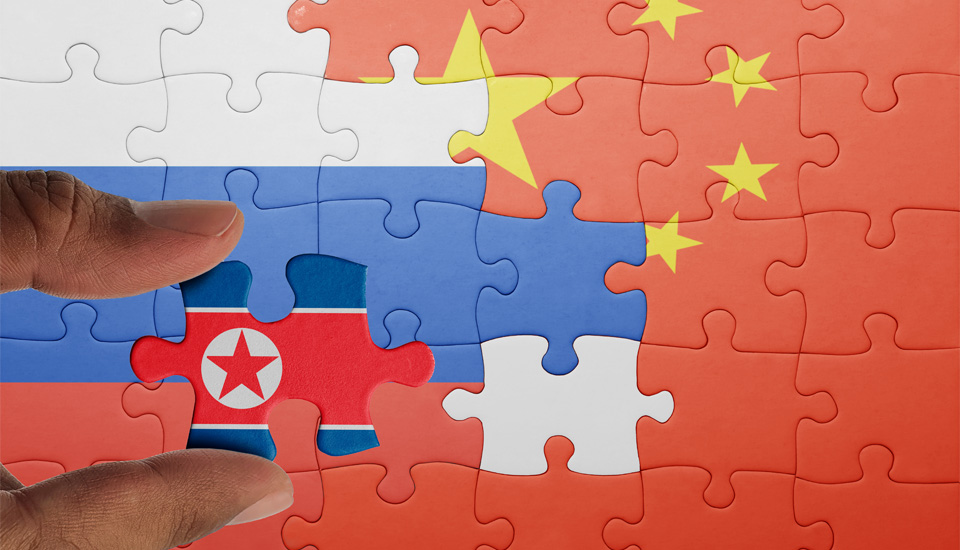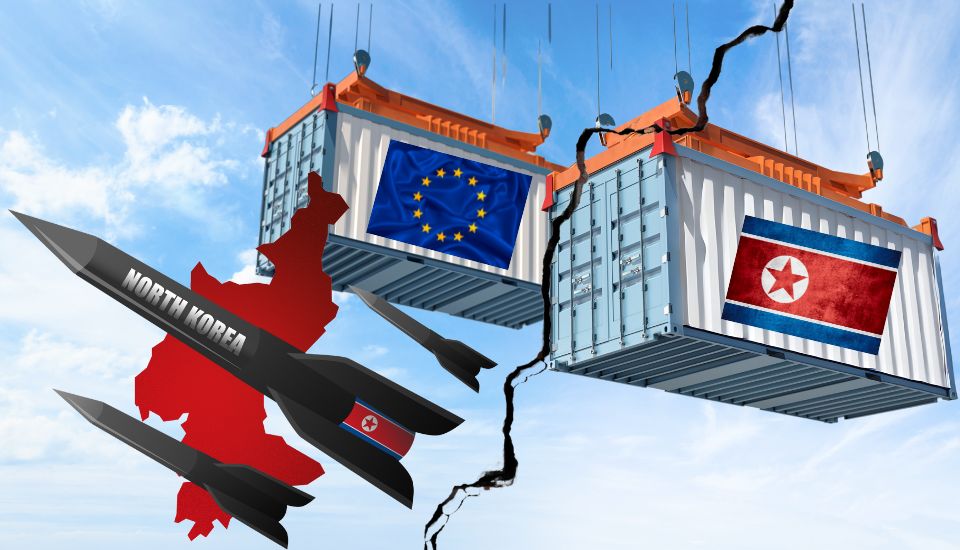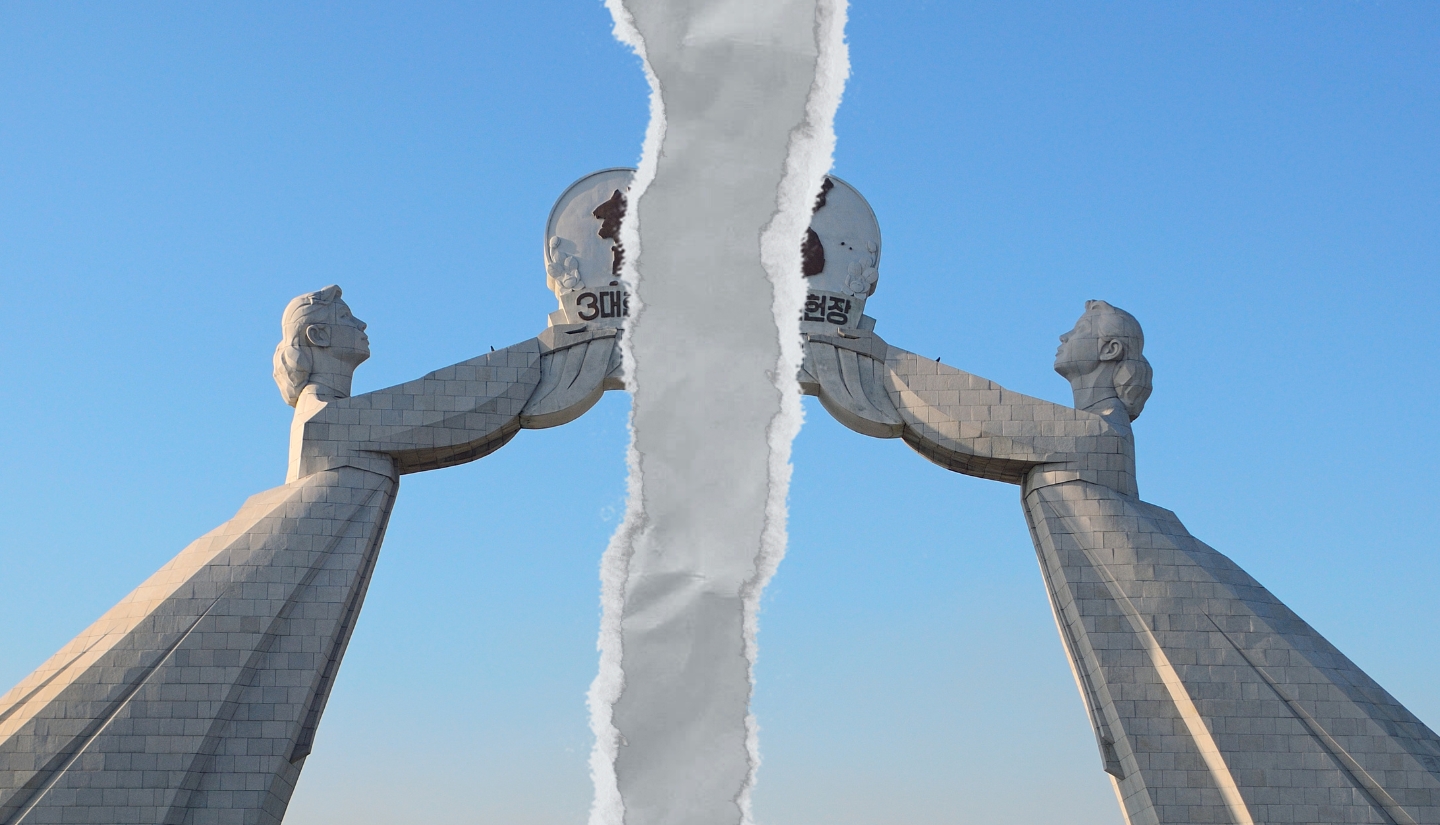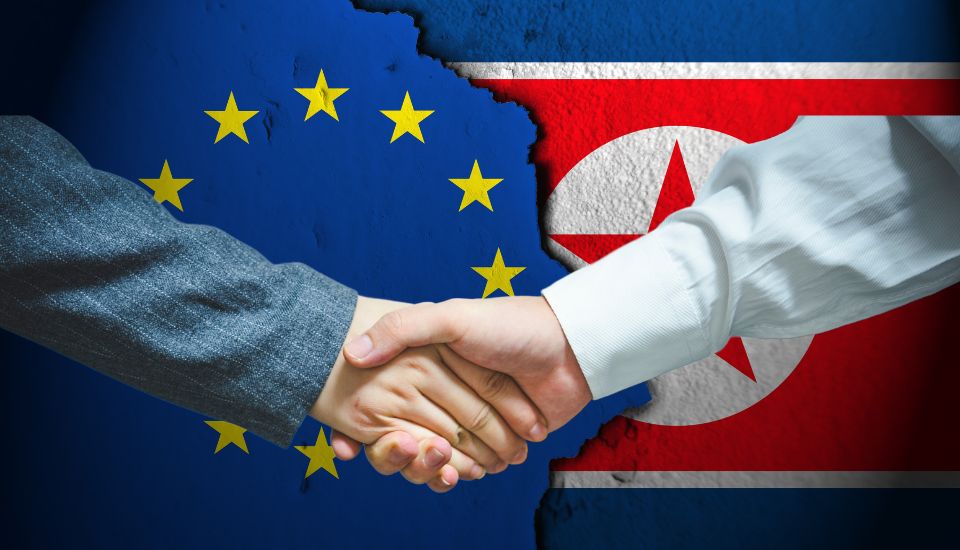North Korea perceives the current global landscape as akin to the "New Cold War" era. Over the past three decades, North Korea has grappled within the framework of the U.S.-led liberal order. In the perspective of North Korea, forging stronger ties with revisionist states that challenge U.S. dominance, particularly China and Russia, is pivotal for ensuring the nation's survival and future prosperity. Kim Jong Un aspires to cultivate ideological solidarity rooted in shared worldviews and collective identities, reminiscent of the alliances formed during the Cold War era, as a long-term strategic goal.
The strategic framework adopted by North Korea in this environment comprises several key components. These include the bolstering of nuclear and missile capabilities to pose a threat to South Korea, the reinforcement of political deterrence by officially rejecting future unification strategies with South Korea, thereby implying that South Korea, now deemed a foreign entity, could potentially be targeted with nuclear weapons. Additionally, North Korea has pursued a new diplomatic strategy aimed at strengthening ties with Russia and China to establish a novel trilateral alliance, seeking economic, military, and diplomatic assistance from these key allies.
According to recent reports, North Korea has conducted a successful test of a new solid-fuel hypersonic intermediate-range missile (IRBM), marking another milestone in its ongoing weapons program expansion (KCNA 4/3/2024). Kim Jong Un, the country's leader, emphasized that North Korea has achieved the development of nuclear-capable, solid-fuel systems for all categories of missiles, ranging from tactical to operational and strategic, indicating a comprehensive strategy aimed at augmenting the nation's military capabilities. This announcement underscores North Korea's sustained efforts to advance its missile technology and strengthen its defensive capabilities in the face of perceived external threats.
More importantly, North Korea is orchestrating a fresh diplomatic approach within a New Cold War milieu, seeking to establish itself as a socialist great power. In its renewed assessment, the diminished influence of the United States has fostered strategic collaborations, notably between China and Russia, leading to a discernible polarization of international politics. With the ascendance of China and the enhancement of Russia's influence through its aggressive stance toward Ukraine, North Korea sees a shifting tide in its favor. Following his summit with Putin last September, Kim Jong Un has secured economic assistance, advanced military technology, and the requisite diplomatic backing to advance its nuclear provocations. Concurrently, in the wake of Putin's re-election, China and Russia are intensifying efforts to fortify their bonds with North Korea. A purported summit between Putin and Xi Jinping in Beijing this year, along with speculations about Putin's potential visit to North Korea, further substantiates the trajectory toward deeper diplomatic and strategic entwinements among North Korea, China, and Russia.
Key officials within the U.S. government express shared concerns regarding these developments. In his testimony to the Senate on March 20, 2024, Admiral John C. Aquilino, Commander, U.S. Indo-Pacific Command, U.S. Navy, stated that North Korea, Russia, and China are engaging in actions that are unprecedented in their challenge to international norms and the promotion of authoritarianism (Aquilino 2024). This growing interconnectedness among these adversarial regimes is highlighted by Xi and Putin's announcement of a "no limits friendship" and Kim Jong Un's provision of materials to Putin to support the unlawful invasion of Ukraine. Also, In his statement before the 118th Congress House Armed Services Committee on March 20, 2024, General Paul J. LaCamera, Commander, United States Forces Korea, highlighted the strategic significance of the Korean Peninsula's geographic location. He noted the potential for third-party intervention and influence, specifically from China and Russia, in the event of a crisis. This is due to Korea's position within the PRC's Anti-Access/Area Denial (A2/AD) defensive layers. General LaCamera also emphasized the presence of a premier Joint Force comprising over 28,500 American service members forward-deployed to South Korea, underscoring their readiness and the strategic deterrence they provide (LaCamera 2024).
Amidst these developments, the sustainability of such a tripartite strategic partnership among DPRK, China, and Russia warrants scrutiny. Is this solidarity based on short-term, direct benefits or long-term, inclusive ideology and vision? Each of these nations epitomizes authoritarian or autocratic governance structures. North Korea is entrenched in a robust dictatorship with hereditary rule, China operates under a single-party authoritarian regime anchored by the Communist Party, and Russia, though nominally democratic, has witnessed a concentration of power under President Putin's leadership, morphing into a personalized autocracy. Notably, authoritarian and autocratic states typically ignore the rule of law, circumvent checks and balances, and employ mechanisms of surveillance and repression.
The pivotal question revolves around whether a cohesive socio-political system or ideology, encapsulating political, social, and economic realms, can be forged among these disparate entities. Unlike the ideological polarity of capitalism and communism during the 20th-century Cold War, authoritarianism and autocracy lack the ideological coherence necessary to constitute a unified bloc. Rather, the alignment of interests among individual dictators catalyzes relational bonds, overshadowing any concerted ideological underpinning or interference in the internal affairs of other nations. Ultimately, cooperation among authoritarian states primarily serves to advance individual leaders' domestic political and diplomatic agendas, unimpeded by societal constraints or political oversight. The durability of such collaboration hinges on the fluctuating interests and priorities of these leaders, which may not always converge.
Divergent national interests also play a significant role. Despite the rhetoric of an unwavering "no-limit friendship" between China and Russia, the conflict in Ukraine serves as a litmus test for the strength of their bilateral solidarity. Professor Feng Yujun of Peking University, in an article published in The Economist on April 11, 2024, contended that “China’s relations with Russia are not fixed, and they have been affected by the events of the past two years.” According to him, China’s stance towards Russia has reverted from the “no limits” stance of early 2022, before the war, to the traditional principles of “non-alignment, non-confrontation and non-targeting of third parties.” He underscores the disparities in the national interests of the two countries, highlighting that “Russia is seeking to subvert the existing international and regional order by means of war, whereas China wants to resolve disputes peacefully” (Feng 2024).
Moreover, hierarchical dynamics may emerge within authoritarian alliances, similar to the power disparities witnessed during the Cold War among communist nations. In the current nexus between North Korea, China, and Russia, significant power differentials exist: Russia wields military strength but economically falls behind China, while North Korea's economic prowess is significantly weaker in comparison. Consequently, despite shared interests, a hierarchical framework is likely inevitable, potentially influencing the coherence of the alliance.
Although these nations may find common ground in opposing the U.S.-led liberal international order, their relationships with the United States vary. China pursues a win-win paradigm, whereas North Korea awaits favorable conditions for dialogue with the U.S., particularly following the potential re-election of former President Trump in November. Russia remains at odds due to the ongoing Ukraine War, but the outcome of future U.S. elections or the developments post-Ukraine conflict could recalibrate these dynamics.
These changes in international politics pose a challenge for South Korea. Should South Korea interpret the evolving international landscape as indicative of a new Cold War and adopt a foreign policy rooted in adversarial logic? Accordingly, should it align itself with the liberal camp and pursue a foreign policy characterized by the logic of two-camp confrontation? This involves determining whether to view the DPRK-China-Russia relations as comprehensive, guided by a long-term ideology and vision, or to see North Korea as still open to negotiations with South Korea and the U.S.
While Pyongyang may engage in both short-term collaborations and sustained cooperation with Russia, the stability of such alignment remains uncertain at best, primarily due to the absence of ideological congruence among the involved parties. Despite Russia's pressing need for North Korea's assistance due to its weapons shortage resulting from the conflict in Ukraine, it is improbable that Russia will deviate from the international and domestic economic sanctions regime against North Korea's illicit nuclear program. Russia is acutely aware that providing North Korea with technology for an intercontinental ballistic missile capable of striking the U.S. mainland would irreversibly worsen relations between the United States and Russia. Although Russia may offer some level of economic assistance to North Korea, sustaining such support beyond the sanctions to facilitate North Korea's economic prosperity seems unlikely. Furthermore, as North Korea's economic situation deteriorates and dissatisfaction among the population with the regime grows, Russia's capacity to ensure Kim Jong Un's continued grip on power is limited.
Similarly, while China may prioritize the survival of Kim's regime over denuclearization, it is improbable that it will deviate from the international economic sanctions against Pyongyang. Moreover, as North Korea continues to enhance its nuclear weapons and missiles, military cooperation between South Korea, Japan, and the United States will inevitably strengthen, heightening China's vigilance. In the face of North Korea's actions to bolster its military power, which undermine China's security interests, sustaining the long-term solidarity and cooperation that Pyongyang desires becomes increasingly challenging.
In this context, South Korea's foremost imperative lies in neutralizing North Korea's New Cold War diplomatic strategy. South Korea must convey to North Korea that its economic prosperity depends on reaching compromises with South Korea and the U.S., rather than relying solely on China and Russia, whose interests may not align in the long term. It might take time for Pyongyang to recognize that cooperation with China and Russia will not ultimately guarantee the regime's security and economic development. As long as the conflict in Ukraine and the strategic competition between the U.S. and China continue, North Korea's adherence to New Cold War strategies may persist. In the interim, South Korea should maintain military deterrence and economic sanctions against North Korea, while continuing security cooperation with the United States and Japan. However, it is imperative for South Korea to communicate to Pyongyang that nuclear missiles offer no viable guarantee for regime security and to persuade North Korea to pursue complete denuclearization through the challenging, yet essential, negotiations needed to achieve it.
Denuclearization of North Korea stands as a cornerstone of global nonproliferation norms, requiring concerted efforts from the U.S., China, and Russia. In a scenario where North Korea achieves denuclearization and establishes a stable relationship with South Korea, marked by reduced military tensions, it is crucial to emphasize that the United States and other neighboring powers, notably China, would not face adverse geopolitical repercussions. Amid escalating geopolitical rivalries among great powers, weaker states may ultimately resort to nuclear armament, endangering the regional and global nuclear order. In this context, South Korea must strive to dissociate great power politics from nuclear nonproliferation endeavors, fostering collaborative frameworks that incentivize North Korea to return to the negotiation table.
Ultimately, South Korea's diplomatic strategy should focus on undermining North Korea's futile New-Cold War aspirations, advocating for a cooperative approach centered on nuclear disarmament and regional stability. ■
References
Aquilino, John. C. 2024. “Statement of Admiral John C. Aquilino, U.S. Navy Commander, U.S. Indo-Pacific Command.” Senate Armed Services Committee. March 21. https://www.armed-services.senate.gov/imo/media/doc/aquilino _statement.pdf.
Feng, Yujun. 2024. “Russia is sure to lose in Ukraine, reckons a Chinese expert on Russia.” The Economist. April 11. https://www.economist.com/by-invitation/2024/04/11/russia-is-sure-to-lose-in-ukraine-reckons-a-chinese-expert-on-russia.
Korean Central News Agency (KCNA). 2024. “DPRK Missile Administration Succeeds in Test-fire of New-type Intermediate-range Hypersonic Missile.” April 3. https://kcnawatch.org/newstream/1712095526-657354184/dprk-missile-administration-succeeds-in-test-fire-of-new-type-intermediate-range-hypersonic-missile/.
LaCamera, Paul J. 2024. “Statement of General Paul J. LaCamera, Commander, United Nations Command; Commander, United States-Republic of Korea Combined Forces Command; Commander, United States Forces Korea Before the 118th Congress.” Senate Armed Services Committee. March 21. https://www.armed-services.senate.gov/imo/media/doc/ lacamera_statement_3212024.pdf.
■ Chaesung CHUN is the Chair of the National Security Research Center at the East Asia Institute (EAI) and a Professor at the Department of Political Science and International Relations at Seoul National University.
■ Typeset by: Jisoo Park, Research Associate
For inquiries: 02 2277 1683 (ext. 208) | jspark@eai.or.kr





